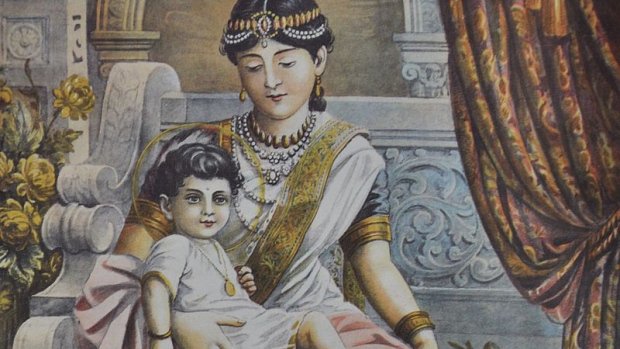Author Wendy Garling on Buddhism's forgotten women:
n both ancient lore and modern culture, we hear much about the Buddha's road to enlightenment – from his birth to his parinirvana, or death.
But missing from most accounts of Prince Siddhartha's life are the women who influenced him along the way and who played a significant role in his journey of awakening.
Wendy Garling is a writer, dharma teacher, and practicing Tibetan Buddhist. When she realized many of those stories were "hiding in plain sight," Garling began digging to find out more about the women in the Buddha's circle.

A retelling of the ancient legends of the women in the Buddha’s intimate circle by author Wendy Garling
Her retelling of these ancient stories exposes the bias of those who first wrote down those stories, challenges the common understanding of women's roles in early Buddhism and sheds light on the sacred feminine in the faith.
"It's important to remember that at the time of the Buddha, everything was communicated through the oral traditions," Garling points out. "The stories that sprang up around his life were not written down for many hundreds of years… So there's no one way the stories were told."
She notes that many of the early stories were initially written down by monks at Buddhist monasteries, and those men may have focused on the more religious aspects of the Buddha's life and teachings, discarding details they deemed irrelevant.
"I think the forgotten stories I found - that are so important and so different - were less edited, frankly," she adds. "In many cases, they had no real religious purpose, but they were telling wonderful stories – stories about the Buddha, and stories about women."

Maya's dream of the birth of Gautama Siddharta, the Buddha
Here are some highlights:
- Garling says traditional tellings of the Buddha's birth story seldom include women, even omitting the Buddha's birth mother, Mayadevi. Those accounts that do include Maya depict her as giving birth standing up, holding onto a tree for support, as Siddhartha emerged from her right side, with no blood or water exuded during the labour.
- Maya is thought to have died shortly afterwards, leaving Siddhartha to be raised by her sister, Mahapajapati,
who is said to have been present at the birth. Artistic renderings
often depict Mahapajapati holding Maya around the waist during the
labour – symbolizing the role of both mothers in the Buddha's life.
Later, after her husband died, Mahapajapati became a nun. When the
Buddha finally decided to leave his palace home as he moved towards
enlightenment, it was his second mother's tears and wisdom that sent him
on his way.
 Painting of the birth of Gautama Buddha, out of the side of Queen Mahamaya
Painting of the birth of Gautama Buddha, out of the side of Queen Mahamaya
- Goddesses played a role in early Buddhism. For instance,
Garling argues the tree Maya held onto during the Buddha's birth was
actually Abhayadevi, a goddess of protection who lowered her branch to
support Maya during birth. Buddhism includes many female deities,
including goddesses of peace, compassion, and liberation.
- Before he became the Buddha, Siddhartha had a harem of women.
In a commonly told story, the consorts are ordered by Brahmin gods to
appear vulgar and ugly in order to repel Siddhartha from desire and
other earthly gratification. In Garling's retelling, at the urging of a
wisdom goddess, the women themselves conspire to drive Siddhartha away.
Instead of being passive, the women actively help release Siddhartha
from his final attachment.
Source: http://www.cbc.ca/radio/tapestry/a-new-cast-of-heroines-1.3867417/hiding-in-plain-sight-buddhism-s-forgotten-women-1.3867419

No comments:
Post a Comment